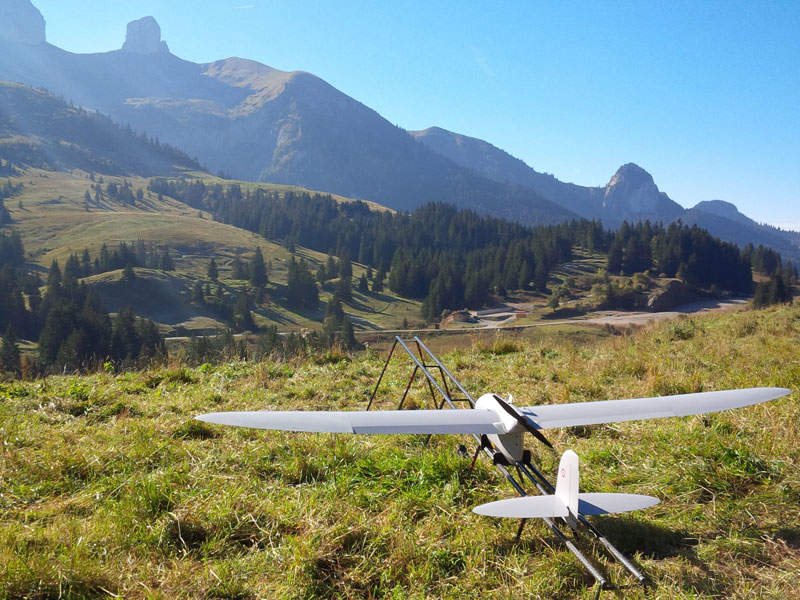By Pierre Tran
Paris – France should reach agreement on a European project for a medium-altitude, long-endurance drone, while keeping close budgetary watch and ensure military needs were met, the national audit office said in a Feb. 25 report.
That report was published just a few days before Airbus presented March 2 to the armed forces ministry an analysis and mitigation of risk for the company’s budget request of an estimated €7.1-€7.2 billion ($7.9-$8 billion) to build a MALE drone.
That presentation reflects lessons Airbus learnt on building the A400M, a transport plane which led to some €10 billion of charges for the company. Airbus seeks a binding agreement to freeze requirements, which would be “set in stone,” a source said.
The ministry should “maintain strategic European interest, promptly conclude an agreement with partner nations and companies on a MALE drone program, financially manageable and meeting operational requirements,” said the NAO, an independent office.
That European UAV carries “strategic” significance as the project would allow “cooperation, test the solidity of ties with our partners, particularly Germany, consolidate the European defense industrial and technological base, while taking part in the construction of European defense,” the report said.
The UAV project offers a replacement for a fleet of General Atomics Reaper, which is due to be retired from service between 2032-2036, the report said.
However, close scrutiny was needed due to difficulties surrounding the project.
A distinct set of French and German requirements has led to delays and costs seen to be unacceptable by the partner nations, and cast doubt over successful conclusion to the project, the report said.
A positive outcome to the project, which will receive €100 million of funding from the European Union, will serve as a test, the report said.
France, Germany, Italy and Spain are partner nations for the UAV project.
The report carried a reply from the armed forces minister, Florence Parly, who agreed to the audit office’s recommendations.
The cost of ownership was a key factor, she said. Negotiations over the European UAV were due to be concluded by the end of 2019 and a contract signed by mid year.
Ownership of a highly effective operational capability, essential to freedom of action of French forces, and cost control were highly important, she said.
“It would be difficult to envisage in 2028 the French forces not having equipment as capable as that which is already on the market,” she said.
The audit office gave a scathing report of fumbles in French policy which led to failure to build a European aerial unmanned vehicle and costly dependence on US kit, namely an urgent operational requirement for the Reaper, which has cost some €800 million and is subject to what the office sees as strict rules.
“France has been slow in drawing conclusions on the importance of drones in modern military operations,” the report said.
“The combined consequences of disaccord between companies, lack of forward thinking by the forces, and policy switches by the authorities have led to damaging and expensive consequences, and an extended operational life of aging equipment.
“It has also led to the acquisition of American equipment under constraining and restrictive conditions.”
A key “cultural” factor was the importance of the pilot for the air force, the report said. Divergent needs of air force and army, competition between companies, and diplomatic twists led to a failure to draw on French technology and European cooperation, the report said.
There has been a lack of strategic thinking and medium term planning, slowing a pooling of equipment and a consistent approach to acquisition, the report said. The report contrasts the lack of French drones with greater capability flown by UK forces.
France has increased spending on drones since 2015, but that investment remains limited in view of the potential in terms of effectiveness and cost, the report said.
Meanwhile, there has been turbulence in the delivery of tactical and mini drones.
Thales, an electronics company, will deliver the Spy Ranger mini drone in the first half of the year, executive chairman Patrice Caine said Feb. 26 at a news conference on financial results.
That delivery is late, as the company had been due to ship the first drone system last year. It was not clear what has delayed shipment, but a new date had to be agreed.
Thales won that deal in December 2016, displacing Airbus Defence and Space, which supplied the Drac mini UAV and pitched its SkyGhost as replacement.
Meanwhile, a Patroller built by Safran, an aerospace and engines company, crashed Dec. 6 on a flight to test the tactical UAV ahead of delivery to the army.
Safran chief executive Philippe Petitcolin said Feb. 27, the Patroller would enter into service in 2021, business website La Tribune reported. The cause of the crash — faulty subsystems — was quickly identified, the report said.
Flights are continuing, with a pilot on board the Patroller while the unmanned systems are tested.
Safran signed up in 2016 to ship the Patroller in 2018, offering its UAV against the Thales Watchkeeper, which had been selected by the UK.
Safran pitched its Patroller partly on the strength on its 85 percent French content, while Thales had pledged to boost French content on Watchkeeper to 30 percent from 10 percent.
The source for the Spy Ranger photo:


